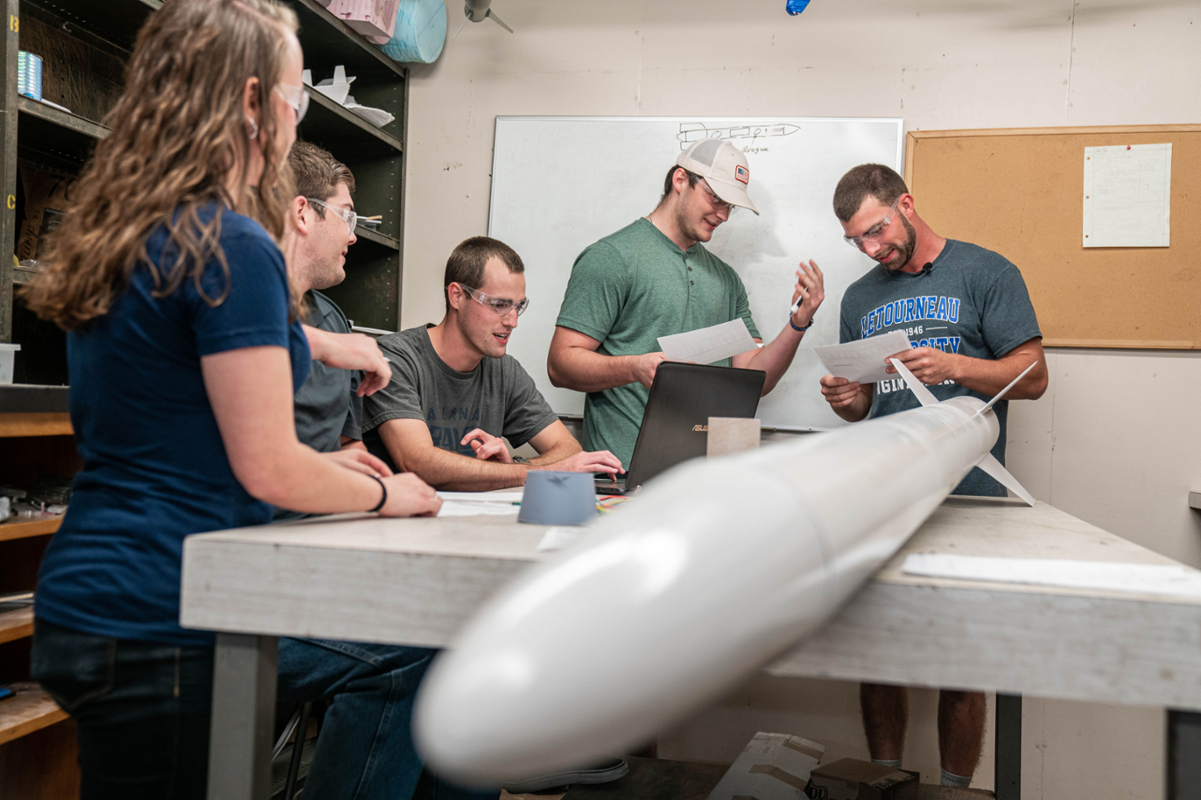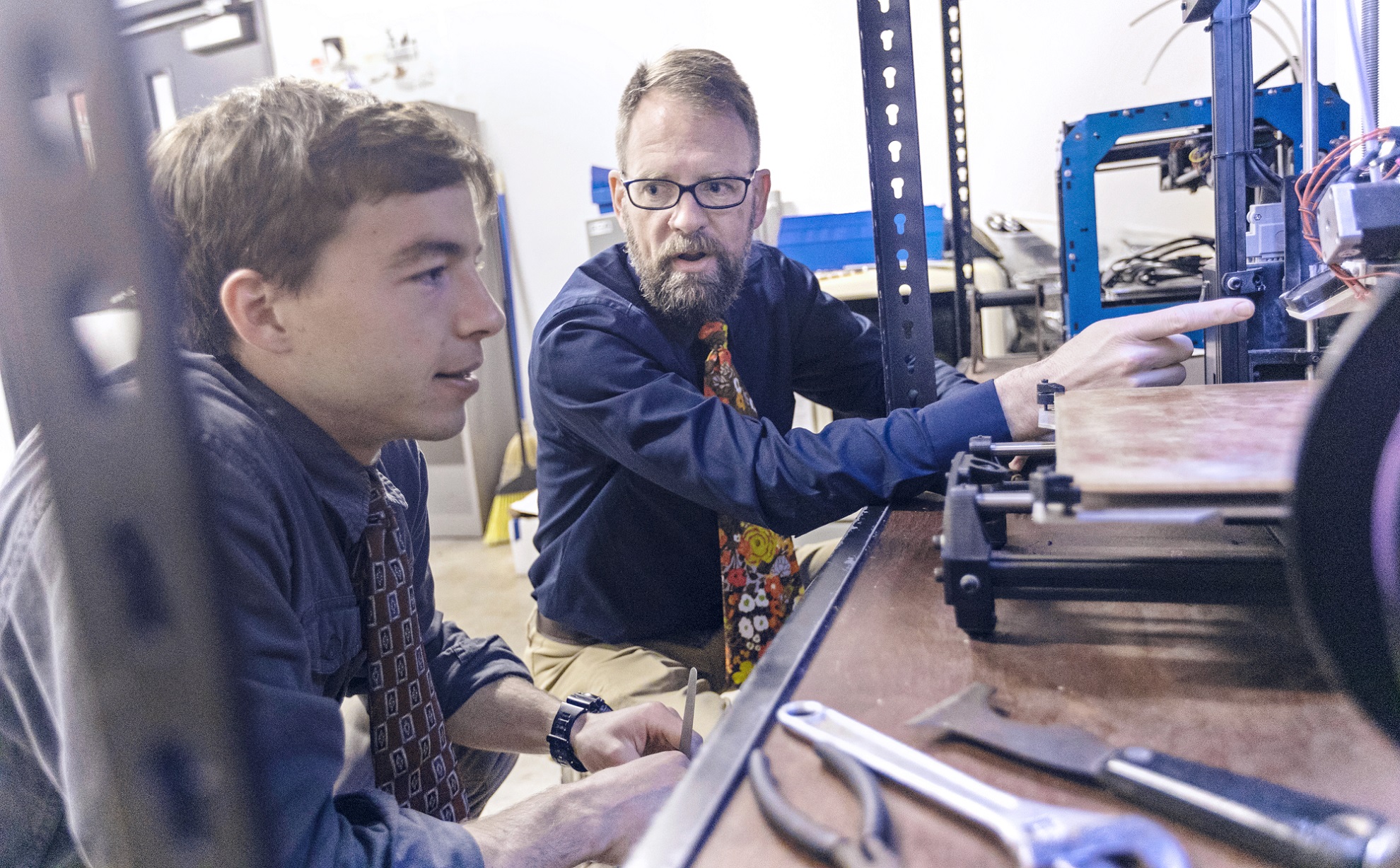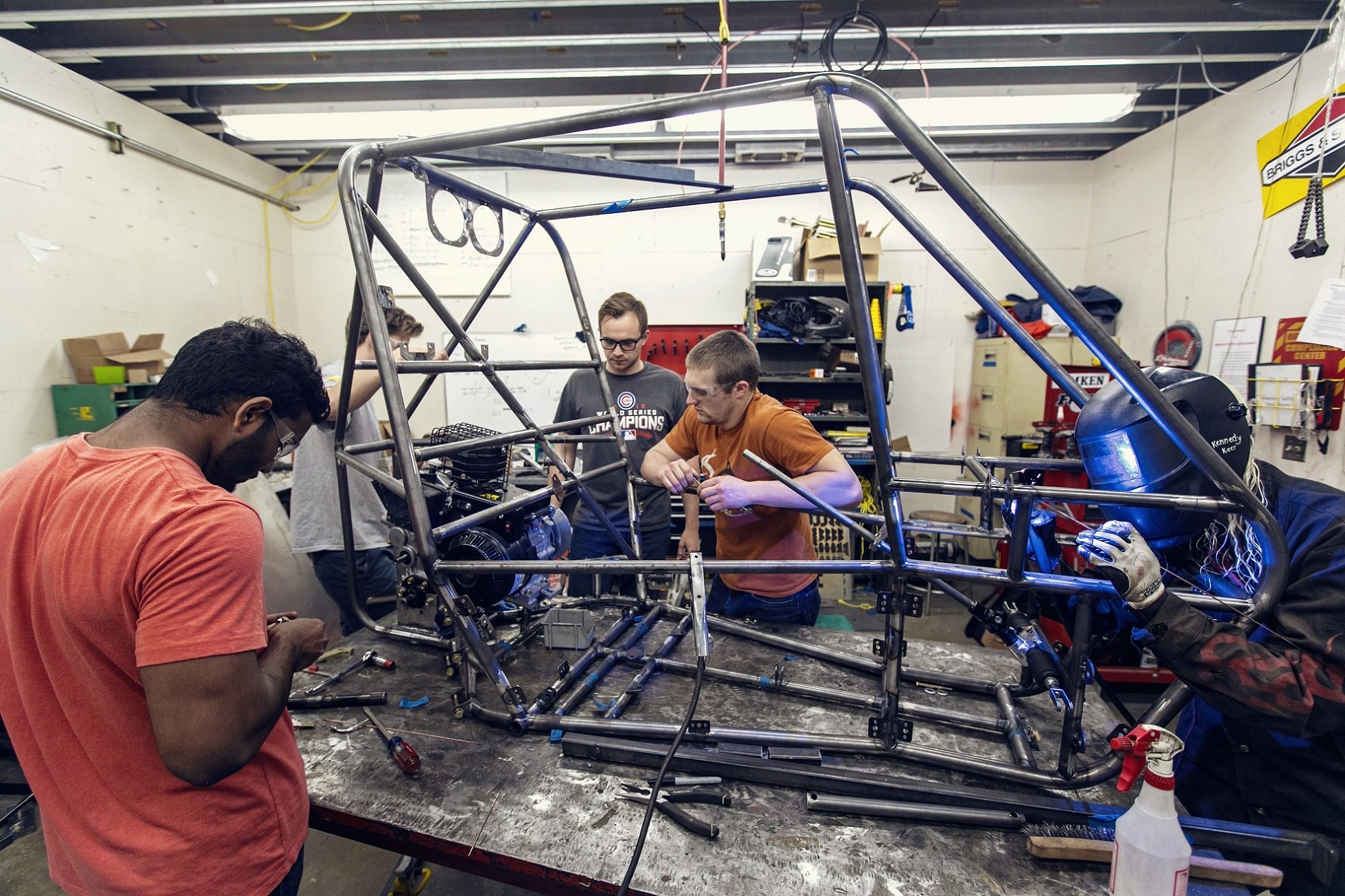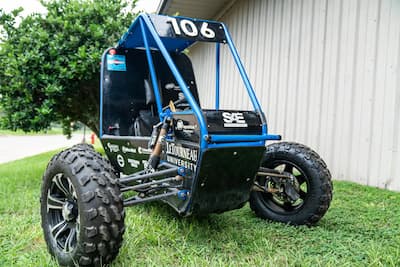What Is Mechanical Engineering?
Mechanical Engineering is a versatile discipline of engineering dealing with any physical apparatus meant to accomplish a task. Applications of Mechanical Engineering design include products that affect virtually every area of your life, including the following:
- Automobiles, farm or construction machinery, and airplanes
- Internal combustion, gas turbine, and jet engines
- Heating, air conditioning, and refrigeration systems
- Oil and gas, boats and ships, and medical equipment
- Robots, automation, and manufacturing equipment
What Do Mechanical Engineers Do?
With a Bachelors of Science in Mechanical Engineering (BSME) our graduates are able to create whatever they set their mind to, including their own career path!
The BSME degree prepares students for registration as a Professional Engineer and provides the educational background for professional employment or for graduate study. A unique blend of mathematics, sciences, and engineering topics, together with communications, humanities, social sciences, and Biblical studies prepares students for professional engineering positions. Graduates from this program hold a wide range of positions including:
- Mechanical Engineer
- Aerospace Engineer
- Automotive Engineer
- Manufacturing Engineer
- Mechanical Design Engineer
- Project Engineer
- Product Engineer
- Design Engineer
- Oil and Gas Engineer
- Marine Engineer
- Processes Engineer
- Automation Engineer
- Research Engineer
- Quality Engineer
- Sales Engineer
Some graduates take their learned skills from their BSME to non-traditional career paths such as entrepreneurship, management, medicine, law, or even the mission field.
Interesting Classes you will Take
- Mechanics of Materials - Learn how force relates to deflection in the structure of your design.
- Machine Design - Extend what you learned in Mechanics of Materials to design machine components, evaluate failure criteria, and specify the needed components for your design.
- Mechanical Vibrations - Using Newton's Laws of Motions to describe and mitigate unsafe oscillations in mechanical systems.
- Fluid Mechanics - Study fluid statics to describe forces on marine structures and fluid dynamics to describe the flow of ideal fluids, boundary layers, and flow through pipes and ducts.
- Thermodynamics - Discover the relationship between heat and all other forms of energy and how this can be used to suit your design.
- Heat Transfer - Learn how heat flows in a system through conduction, convection, and radiation.
- Mechanical Engineering Labs - Instrument engineering equipment, and collect and analyze data from a wide range of topics in Mechanical Engineering.
Capstone Project Highlights
Students pursuing a B.S. in Mechanical Engineering participate in a two semester senior design project. Mechanical Engineering students work on nearly every senior design project at LETU such as LETREP: LeTourneau Rehabilitation Engineering Project, ACME: Additive Construction Materials Experimentation, and SWEET SHOP USA - Mint Stick Recovery Project which allows our students to delve deeply into topics that interest them.
Recent projects advised by Mechanical Engineering faculty are:
LUNAR (2020-Present) LeTourneau University Nexus for Amateur Rocketry

This Senior Design team will join thousands of students from across the country to compete in a NASA student rocket competition where each team needs to design, build, and test their own high-powered rocket.
TATO (2018-Present) Vehicle Mobility Assist Device
 This Senior Design team aims to design, build, and test a device to effectively help a person with a disability to get in and out of a vehicle safely and with ease. The device is expected to be cost effective and safe to operate.
This Senior Design team aims to design, build, and test a device to effectively help a person with a disability to get in and out of a vehicle safely and with ease. The device is expected to be cost effective and safe to operate.
Additional Student Projects
Many students enjoy working on non-capstone projects through clubs, directed study, and junior design to have creative outlets and gain experience. One particular favorite is the SAE Mini Baja Project where students design, build, and race an off road vehicle in the annual Baja SAE Competition. Team members and their sponsor introduce the club and explain what it's like to be a part of the team here: Renegade Racing at LETU


How Do I Prepare?
The program is designed to be completed in a four year period by students who have already completed the following list of courses. However, if you haven't taken all of these courses by the time you graduate high school, you may make up the necessary courses during your freshman year at LETU.
- Four years of high school English
- Two years of algebra
- One year of geometry
- One semester of trigonometry
- One year of science (chemistry or physics)
Both physics and chemistry are desired. Students who transfer from another college or university should understand that there are sequences of courses in the curriculum, up to six semesters in length, which build on one another.
LEARN MORE ABOUT MECHANICAL ENGINEERING AT LETU
- View program details in our current catalog
- See our most recent suggested course sequence
- Or the optional BSME degree with a focus on Biomechanics
- Questions can be directed to the Mechanical Engineering Department Chair: AndrewDavis@letu.edu